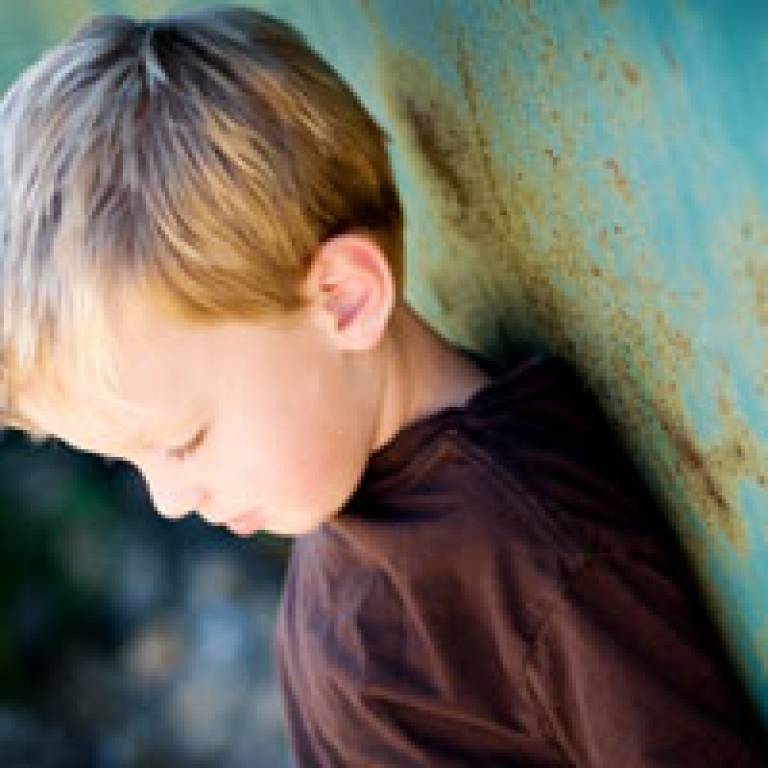UCL scientists research the effect of fright on the brain
7 June 2010
Links
 ucl.ac.uk/psychlangsci/staff/cehp-staff/p_fonagy" target="_self">Professor Peter Fonagy
ucl.ac.uk/psychlangsci/staff/cehp-staff/p_fonagy" target="_self">Professor Peter Fonagy
UCL scientists are involved in an ambitious research programme to determine how children's exposure to frightening experiences or neglect affects the development of their brains and potentially makes them prone to violent outbursts.
The study, which will try to show that these effects may be reversed by effective intervention, is a partnership with Kids Company, the children's charity and involves academics from UCL, the Institute of Psychiatry, the Anna Freud Centre, University of Oxford and the Tavistock Clinic.
The researchers will use brain scans and psychological tests to examine the emotional and neurological profiles of the highly deprived children supported by Kids Company. They will also examine the impact of providing a supportive therapeutic environment to children who have been neglected to see how children's brains can adapt to make them less prone to violence.
The charity hopes that the research will lead to a significant change in the way vulnerable children are supported. The charity has launched a fundraising campaign to implement the research programme and is asking the public to each donate £5 to buy a virtual neuron in a one-million neuron virtual brain.
Professor Peter Fonagy (UCL Clinical Educational and Health Psychology) said: "Dr Pasco Fearon and I are pleased to be engaged in a groundbreaking study exploring changes in brain activity associated with successful treatments for children with problems of aggression or antisocial behaviour, many of whom have been exposed to great trauma and have been raised in very deprived circumstances."
"We firmly believe that when psychosocial treatments work we need to know why, and how, so we can make them even better. We would never see the children and adolescents we are able to work with by collaborating with Kid's Company in our labs here. The collaboration is a highly creative one, and an excellent opportunity for UCL science to directly support a unique community initiative."
Camila Batmanghelidjh, chief executive of Kids Company, who commissioned the research said: "Most of us are only programmed to be frightened for short periods without getting some relief. But the 1.5 million children who are abused and neglected every year in the UK are actually being frightened chronically without rest or relief. The consequence is often disturbed behaviours and violence.
"If the maltreatment of children is altering their developmental pathways then we are not dealing with children who are morally flawed. The public perception is that these children are just like anyone else until they come to the point of doing something bad. Then the public decides these children have made a thought-through decision, when the vast majority will not have thought at all - their violence was almost instinctive."
Image above: Frightened child
UCL context
Working within the new Division of Psychology and Language Science (PALS), the Research Department of Clinical, Educational and Health Psychology (RDCEHP) aims to be the premier research group in the field of psychology applied to mental and physical health and education in the UK, to continue to embrace and celebrate outstanding individual problem driven scholarship and to continue to drive the agenda of professional psychology training, particularly in educational and clinical psychology.
 Close
Close

